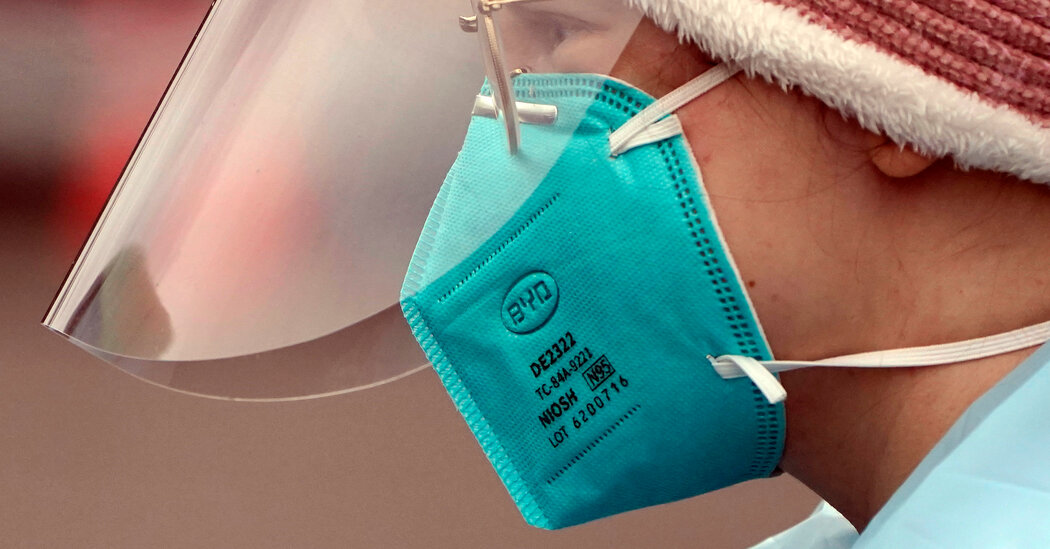
The Centers for Disease Control and Prevention on Friday clarified its stance on various kinds of masks, acknowledging that the cloth masks frequently worn by Americans do not offer as much protection as surgical masks or respirators.
While this disparity is widely known to the general public, the update marks the first time the C.D.C. has explicitly addressed the differences. The agency’s website also no longer refers to a shortage of respirators.
The change comes as infections with the highly contagious Omicron variant continue to soar. Some experts have said that cloth masks are inadequate to protect from the variant, and have urged the C.D.C. to recommend respirators for ordinary citizens.
The agency did not go that far. Its updated language now says that “a respirator may be considered in certain situations and by certain people when greater protection is needed or desired.”
The previous version of the recommendations said individuals may choose to use a disposable N95 respirator instead of a mask “when supplies are available.”
N95 respirators, so named because they can filter out 95 percent of all airborne particles when used correctly, were in short supply early in the pandemic. At the time, the C.D.C. and the World Health Organization both repeatedly said that ordinary citizens did not need to wear masks unless they were sick and coughing.
The C.D.C. also said regular surgical masks were “an acceptable alternative” for doctors and nurses when interacting with a patient infected with the coronavirus — a move that angered medical personnel.
Critics charged that the recommendations were based not on what would best protect Americans, and were instead prompted by a shortage of N95 respirators.
When the C.D.C. finally recommended masks for ordinary Americans, it emphasized cloth face coverings. It took months more for the C.D.C. and the W.H.O. to concede that the coronavirus can be carried by tiny droplets called aerosols, which can linger indoors for hours.
According to the C.D.C.’s new description of masks, loosely woven cloth products provide the least protection and layered finely woven products offer more. Well-fitting disposable surgical masks and KN95s — another type of respirator mask — are more protective than all cloth masks, and well-fitting respirators, including N95s, offer the highest level of protection.
The agency urged Americans to “wear the most protective mask you can that fits well and that you will wear consistently.”



